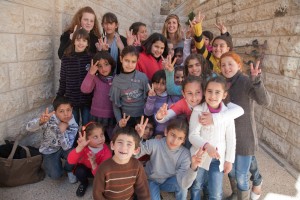 There is no doubt that the global relationship between Christianity and Islam is strained. Although both are monotheistic faiths (religions that worship only one God) who share much of their history and family lineage (all the way back to Abraham), there have been many political, cultural and social realities over the years that have driven their followers away from each other rather that towards one another.
There is no doubt that the global relationship between Christianity and Islam is strained. Although both are monotheistic faiths (religions that worship only one God) who share much of their history and family lineage (all the way back to Abraham), there have been many political, cultural and social realities over the years that have driven their followers away from each other rather that towards one another. Many Christians quickly associate Muslims with terrorists who instigate heinous crimes among unknowing civilians in the West.
Many Muslims quickly associate Christians as power hungry imperialists who kill hundreds of thousands of civilians in the Arab world to benefit their political agenda.
While these events have tragically happened in our lifetime, they CANNOT be our primary lenses through which we view one another. Not only is it inaccurate to the majority of the followers within each faith, it is reduces our ability to pursue genuine relationship.
When we buy in to the political rhetoric, polarizing ideology and blind prejudice we lose our ability to have a divine imagination for what God desires for humanity. When we fail to view others primarily through the lens of a shared humanity and as co-image bearers, we miss out on sacred Kingdom moments. We lose our ability to be agents of reconciliation and miss out the some of the best work God is seeking to do in and through his people.
What Do We Do?
We listen
When in doubt on how to better love someone with a different worldview or religion than you, it is safe to say that our first response should always be to listen. Whether we admit it or not, we have all acquired presuppositions, stereotypes (some accurate; others not at all) and expectations that we project onto people. We must first choose the posture of a humble learner who willingly sets aside misinformation we carry with us so we can begin to reform our worldview in light of genuine, human interaction.
We choose relationship
When you physically know and have relationship with someone of a different faith, it changes everything about how you understanding and engage the faith and its followers. When we fail to allow for the nuance and complexities that exist in real time interactions we undermine and undervalue the dynamics of real life relationship. You will quickly find that those with the strongest opinions who demonize and stereotype others are the very same people who don’t have any interaction or friendship with the people they demonize. As they should, relationships offer the type of grid through which we can genuinely love and be loved.
We seek forgiveness
We have to come clean with the fact that the worst of our faith has radically misrepresented the best of it. We are all part of a faith family and when your racist, war-mongering uncle does something hateful to your neighborhood, whether we like it or not, he represents the rest of the family to those around us. In the same way, the worst of Christianity and Islam has often been given the most attention and created the most divide. We have to acknowledge our inherent complicity and seek forgiveness. I don’t know how many times my Muslim friends have apologized for the terrorist acts of their religions’ extremists. My friends are embarrassed and assure me that the extremists don’t represent Islam or the majority of it followers. In the same way, I have to acknowledge the ways my faith family has demonized, fueled hatred and violently imposed itself on those in our global village. It is in the posture of forgiveness that we become equals and can begin to move forward in friendship.
We Dance
I recently invited some of my friends from America (with The Global Immersion Project) to meet some of my friends in the Middle East who run a non-profit in the West Bank that promotes peace and reconciliation among the youth of Palestine. Their staff is made up of both Christians and Muslims and they not only work together hand in hand under a common vision, they are like brothers and sisters. This video gives a small picture of what unfolded in the exact place where hatred, fear and violence are “supposed” to rule. Rather, peace, common joy and new relationships stole the day. Such is life when we move forward as people who celebrate a common humanity.
What happens when you get Christians and Muslims in the same room around a common vision of reconciliation? Well, we dance…
I love this! I have learned more about the Muslim faith and culture from the man who cleans my classroom each day at 4 than from any apologetics class I took in high school or books I’ve read explaining their faith. We have really robust and honest conversations and it’s fascinating how much we share in common, and in the disagreement, there is respect.
For the first time in my life, I have friends who are Muslims. I’m blessed to have moved to a city where there’s great diversity. I have learned so much and shared so much. It’s amazing what relationships do to dispel false notions.